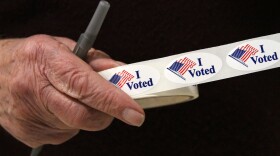The 2020 presidential election has many of us reflecting back to election night, November 2016, when the man who was elected president did not receive the majority of the popular vote. And that's not the first time that's happened! The reason? The Electoral College, which has been part of the presidential election process since the beginning of our country. For this week's Ask Civics 101, what is the Electoral College and why do we have it?
Listen to the answer:
Despite it's name, the Electoral College isn't a place; it's a system for electing the president. Each state has a certain number of electoral votes, and those votes are given to the winner of the plurality of votes in that state. All the votes in a state go to one candidate, no matter how close the race.
The number of electoral votes your state has is the number of people you have in Congress. So here in New Hampshire, we have two people in the House, plus two senators, so we have four electoral votes.
The Electoral College was created as a bulwark, a barrier between the people and the vote for the president. The founders feared giving people too much power so they created a system that put a check on the people's vote by "men of virtue" (and they were all men at the time).
Historically, the Electoral College has benefited certain regions over others. In the early days of the nation, the Constitution counted enslaved Americans as 3/5 of a person. This not only increased the number of people representing slaveholding southern states in the House of Representatives but it also helped tip the scales in presidential elections to southern states. Five of our first seven presidents came from southern, slaveholding states.








